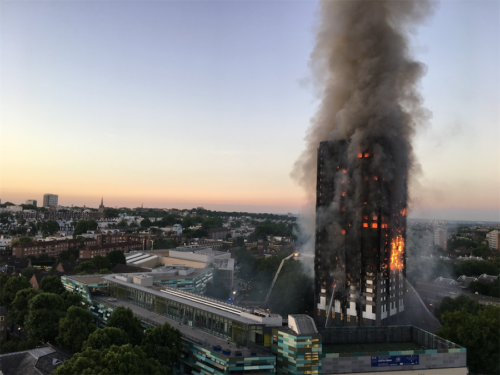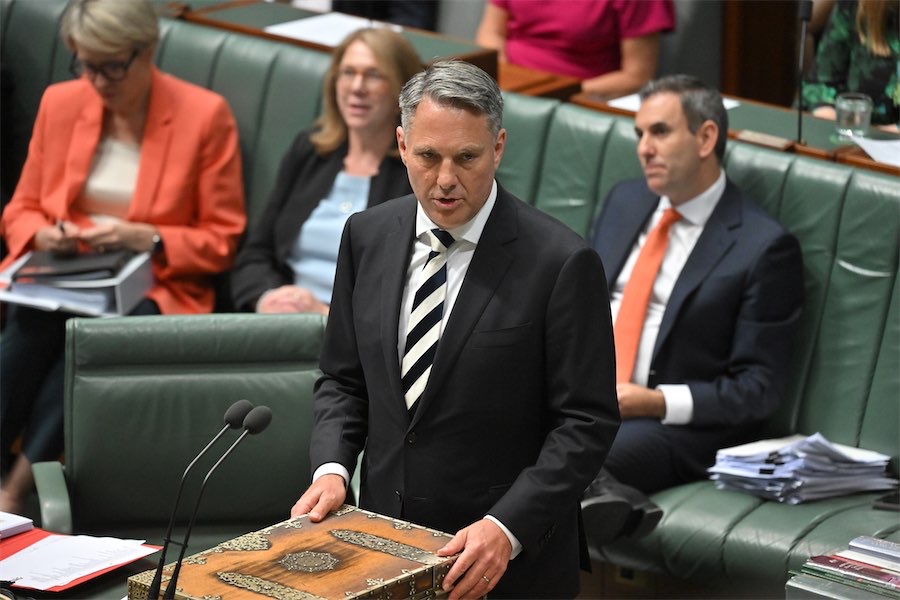
“With the audit identifying 70 at-risk government buildings, how many are there in the private sector that also need to be examined and perhaps remediated?” writes political columnist MICHAEL MOORE.
INACTION has been the hallmark of the ACT government on flammable cladding. They have known about the problem for the best part of a decade.
Government cannot flick the responsibility to private certifiers, the builders, the owners. They do have ultimate responsibility.
The ACT government adopted private certification some time ago – perhaps in the forlorn hope of shafting responsibility to the private sector. In the past such attempts have been futile. Suing Mr Fluffy would never have been successful for home or building owners. In the end, the government stepped in to protect the community.
The same good government stewardship is needed regarding flammable cladding. It is not enough to leave the issues to body corporates to assess the need for remediation. It is not enough to have building owners attempting to sue builders. And it is not enough to allow the private sector to work out the best solution without government guidance.
The ACT government has been sitting on its hands. It has known about this issue since 2010, but even after the Grenfell Tower fires in London in 2017 there has been precious little real action.
It is simply time for regulation. The focus of business is profit and they seek certainty in the market. The focus of the government, first and foremost, is to protect the community.
There are two issues – the flammability of the cladding and the method used to install it. Where it has been installed incorrectly, it allows a fire to spread. This is why the building-certification process is so critical, assessment vital and remediation to be applied as appropriate.
In 2017 the ACT government commissioned a taskforce to make an assessment of the dangers. At the time Geoffrey Rutledge, from the taskforce examining government buildings, argued that “Canberra has been relatively untouched by the issues”.
The colourful cladding used on the Centenary Hospital for Women and Children in Woden was found to be a fire risk. The ACT government eventually committed $1 million to changing the cladding, despite correct installation.
Local real estate identity Christine Shaw has been frustrated by the lack of action by the ACT government. Buyers are now asking if the unit they are considering purchasing is in a complex with flammable cladding.
“A sensible concern,” according to Ms Shaw. She is working with Michael Hopkins, of the Master Builders Association, and Adina Cirson, of the ACT Property Council, to get some government movement on private buildings.
Making a list of government properties available publicly would certainly raise the risk levels for the public servants and others working in these buildings as we live in an age of terrorism. However, it is a different story with private buildings. With the audit identifying 70 at-risk government buildings, how many are there in the private sector that also need to be examined and perhaps remediated?
Ms Shaw and her colleagues have called for an audit of buildings in the private sector. Buyers and owners have a right to know.
“We need to protect owners who may not even realise they need to get their building assessed/remediated; and equally, need to protect buyers by making full disclosure,” she said.
Ms Cirson told the ABC that they are “calling for a nationally consistent, co-ordinated remediation plan which sets up a framework for assessment and then for rectification works”.
The group has also asked for government assistance to identify buildings with flammable cladding.
Is this asbestos revisited? As Greens MLA Caroline Le Couteur, explained: “The ACT government approved these buildings, they gave them certificates of occupancy, so they have some duty of care to the owners and residents of these buildings”.
The Building Cladding Review Taskforce website indicates that the taskforce will initially examine buildings over two storeys. However, there is no indication on progress.
Attorney-General and Minister for Building and Quality Improvement Gordon Ramsay has committed to providing a report on the audit committee findings by the end of the year. Just two months away! Let’s hope it is a report that commits to action.
Who can be trusted?
In a world of spin and confusion, there’s never been a more important time to support independent journalism in Canberra.
If you trust our work online and want to enforce the power of independent voices, I invite you to make a small contribution.
Every dollar of support is invested back into our journalism to help keep citynews.com.au strong and free.
Thank you,
Ian Meikle, editor





Leave a Reply